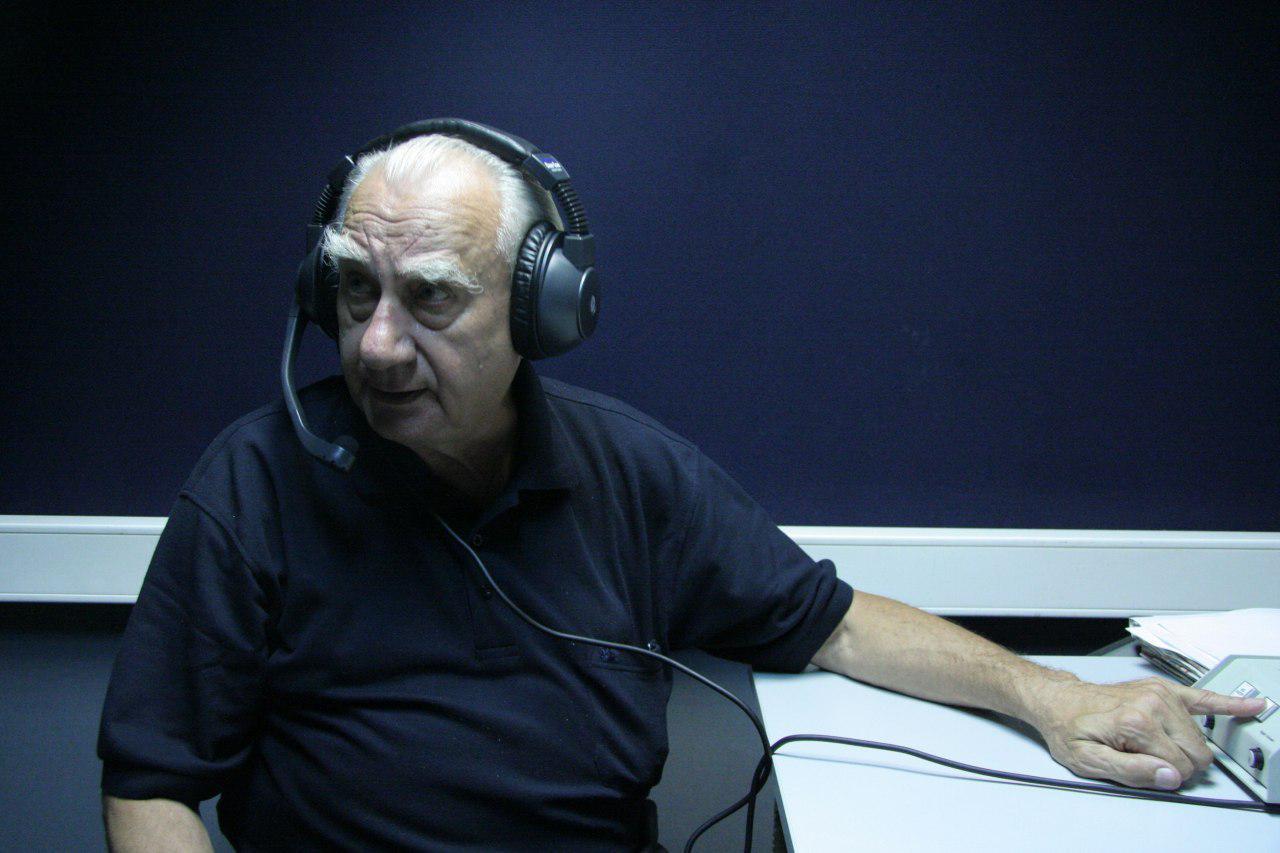Announcer and translator of the RT channel, journalist George Watts died in his 89th year of life in his house in Moscow. As the Watts family told RT, the cause of death was heart failure and pulmonary edema.
Watts joined the RT team in the 2000s, becoming the "voice" of the channel.
“George was the voice of many documentaries. Simultaneously translated on air the first persons of the USSR, and then Russia - from Khrushchev and Brezhnev to Putin. He had an amazing ability to be loved by everyone who met him, was friends and worked, ”wrote Margarita Simonyan, editor-in-chief of RT, in her Telegram channel.
In a film by RT leader Peter Lavelle, George Watts admitted that he always considered himself a rich man, since he has two native countries: Russia, where his parents were born, and Canada, where he was born.
The translator's parents (father - Russian, mother - Ukrainian) were peasants living in Western Ukraine. At the end of the Civil War, Stepan Vac joined the Red Army and returned to his native village and soon received an offer to work in Canada. Two years later, his wife moved there, after which the couple settled in Winnipeg and changed their surname to Watts. George and his brother Carl were born there. In the midst of the Great Depression, the family moved to Manitoba, where the brothers began to study in a rural school.
With the outbreak of World War II, the Watts moved to Hamilton, where George and Karl attended high school and worked at a steel mill with their father. According to the memoirs of a translator, then his relations with foreign languages did not develop in the best way.
“In Westdale, we studied French and Latin at school, and in French I was the worst in the class,” he admitted, noting that he was still able to pass the exam.
After World War II, the family decided to move to the USSR to help rebuild the country.
“We arrived in Ukraine, in the city of Voroshilovgrad. Now it is Lugansk, and there are the graves of my parents. We rented a room. Locals who had never seen people like us before came to us and offered help. Any that they could have provided - at least products, even books. And my brother and I never read books in Russian before ... ”- George Watts recalled.
In 1952, in Voroshilovgrad, when drawing up documents in the passport office, the brothers received new names: George became Grigory, Karl - Cyril.
According to Watts, in the USSR, he realized that his command of English, pronunciation, grammar and phonetics was a valuable skill. The brothers went to Leningrad to enter the Institute of Foreign Languages. Having successfully passed the exams, the Watts began to study, but after the New Year they were transferred to Moscow after talking with the leadership of the Leningrad University, who said that they would have to change their pronunciation, since the institute “taught royal English”.
After Stalin's death, Khrushchev, who came to power, began to open the country to foreign entrepreneurs, and therefore there was a great demand for translators. As Watts said, after one of the winter sessions, Moscow Radio correspondent Konstantin Vishnevetsky came out with his brother and invited young people to work for the radio station.
In 1957, during the World Festival of Youth and Students, Watts and his brother took their first steps in a long career on the radio - they became presenters of the program “Come to Moscow for the festival”.
During his career, George Watts repeatedly translated in the Kremlin, in particular, Nikita Khrushchev and Leonid Brezhnev.
“It’s good that Gorbachev didn’t have to, otherwise he never brought the proposals to the end. But I voiced it, working in RT, three or four times ... Even in the Kremlin, I translated Yeltsin, even the song that he sang, ”said Watts.
In addition, Watts repeatedly met with Marshal Georgy Zhukov, whom he met when he came to visit friends on the radio station. According to the translator, they became friends. He told how, on the day of the Parade on Red Square, Zhukov, who had fallen out of favor, invited him to have breakfast.
“And now 10 o’clock, the parade begins. I followed the reaction of Marshal Zhukov, because his place was on the podium, he should have been saluted. It’s hard to imagine what he’s going through. I did not comment, it was inappropriate. Zhukov did not utter a word, ”he recalled.
- © RT
George Watts also commented on sports. In addition, he translated the cartoon “Squirrel and Strelka” into English and warmly recalled this work, noting that when voicing cartoons “you play with your voice, the range of expressive means is greater.”
With his wife Galina, George Watts also met in Russia. According to the recollections of friends, the family was in the first place with the journalist.
“When for the first time at Russia Today we needed to write about ourselves, I very briefly stated my biography, and in the last line I noted that my grandchildren are my pride and joy. I am proud of them, and they delight me. In Russian, these words are even consonant: “pride” and “joy”, ”he said in an interview.

